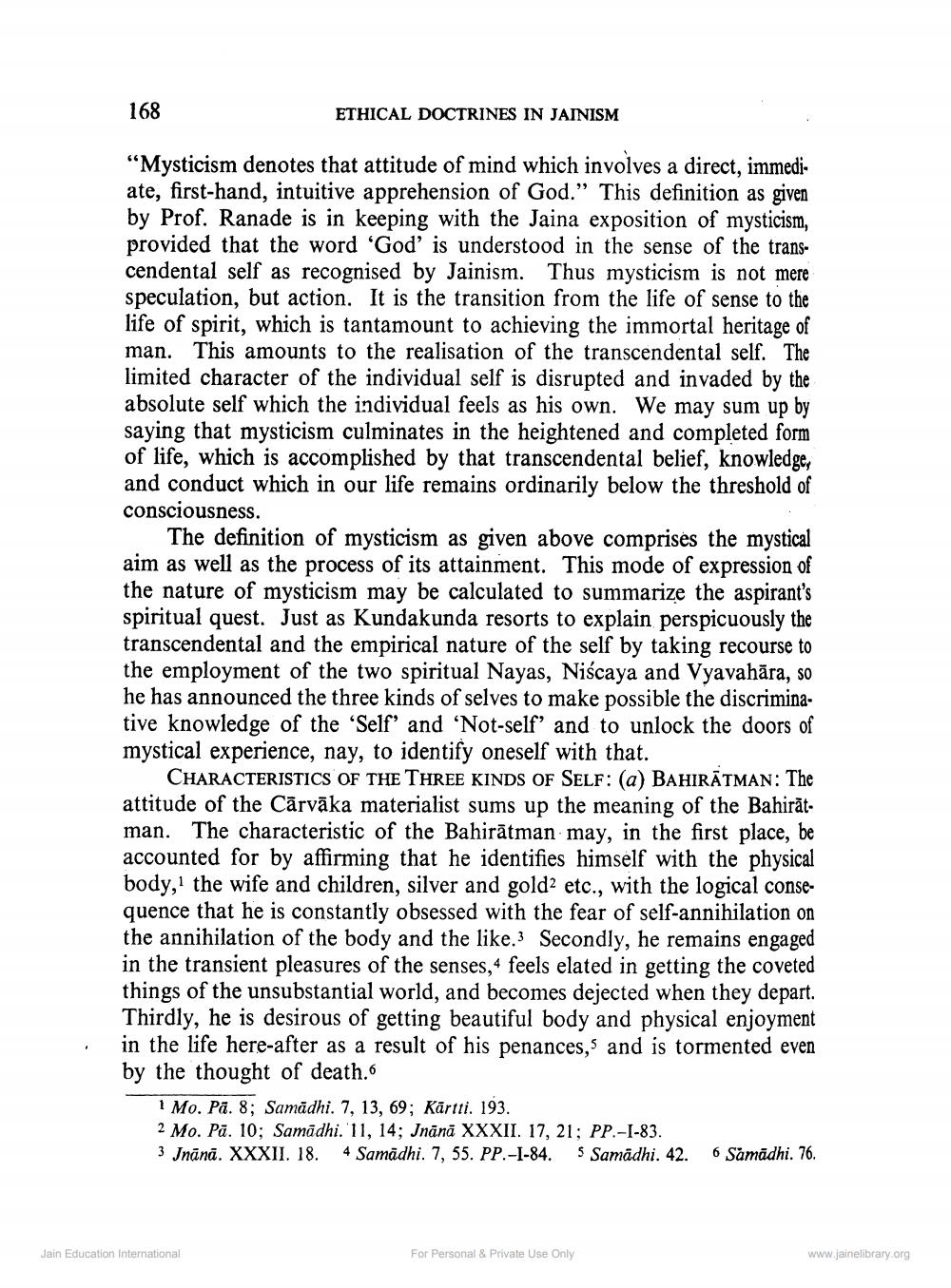________________
168
ETHICAL DOCTRINES IN JAINISM
"Mysticism denotes that attitude of mind which involves a direct, immediate, first-hand, intuitive apprehension of God.” This definition as given by Prof. Ranade is in keeping with the Jaina exposition of mysticism, provided that the word 'God' is understood in the sense of the transcendental self as recognised by Jainism. Thus mysticism is not mere speculation, but action. It is the transition from the life of sense to the life of spirit, which is tantamount to achieving the immortal heritage of man. This amounts to the realisation of the transcendental self. The limited character of the individual self is disrupted and invaded by the absolute self which the individual feels as his own. We may sum up by saying that mysticism culminates in the heightened and completed form of life, which is accomplished by that transcendental belief, knowledge, and conduct which in our life remains ordinarily below the threshold of consciousness.
The definition of mysticism as given above comprises the mystical aim as well as the process of its attainment. This mode of expression of the nature of mysticism may be calculated to summarize the aspirant's spiritual quest. Just as Kundakunda resorts to explain perspicuously the transcendental and the empirical nature of the self by taking recourse to the employment of the two spiritual Nayas, Niscaya and Vyavahāra, so he has announced the three kinds of selves to make possible the discriminative knowledge of the 'Self' and 'Not-self' and to unlock the doors of mystical experience, nay, to identify oneself with that.
CHARACTERISTICS OF THE THREE KINDS OF SELF: (a) BAHIRĀTMAN: The attitude of the Cārvāka materialist sums up the meaning of the Bahiratman. The characteristic of the Bahirātman may, in the first place, be accounted for by affirming that he identifies himself with the physical body,the wife and children, silver and gold2 etc., with the logical consequence that he is constantly obsessed with the fear of self-annihilation on the annihilation of the body and the like. Secondly, he remains engaged in the transient pleasures of the senses, 4 feels elated in getting the coveted things of the unsubstantial world, and becomes dejected when they depart. Thirdly, he is desirous of getting beautiful body and physical enjoyment in the life here-after as a result of his penances, and is tormented even by the thought of death.
1 Mo. P. 8; Samādhi. 7, 13, 69; Kartti. 193. 2 Mo. Pā. 10; Samadhi.'11, 14; Jnānā XXXII. 17, 21; PP.-I-83. 3 Jnănã. XXXII. 18. 4 Samādhi. 7, 55. PP-I-84. ^ Samādhi. 42. 6 Samādhi. 76.
Jain Education International
For Personal & Private Use Only
www.jainelibrary.org




